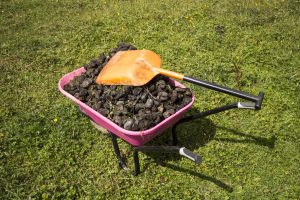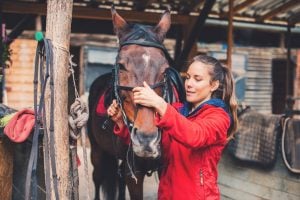Who would have thought that the day would come when a university college would – or could - invest £2million in its equine facilities? That’s what Writtle University College showcased at its open day last week, writes Carolyn Henderson.
Equally, who would have bet that in the same month, the British Grooms Association would be shortlisted for a prestigious industry award? Let’s hope it’s a sign that working in the horse industry doesn’t automatically mean nothing but shovelling you-know-what. But let’s not forget that having to do an appropriate amount of shovelling you-know-what means employees are learning the basics.
And while there is still exploitation in the horse world, there are also employees who think they can fly when they’ve only just hatched. No matter how brilliant an institute of learning proves to be – and I have huge respect for many of them – it can’t turn out people capable of graduating one day and running a business/managing a competition yard/overseeing a stud the next. It can give them every asset to start on that path, and probably speed their progress, but ask any top rider or breeder for essential employee attributes and they’ll talk about fine-tuning skills to suit individual horses and set-ups.
A friend who has just been interviewing applicants for a junior post on her showing yard asked them to identify their long-term and short-term goals. All said their long-term ambitions were to manage their own yards, train horses and compete at top level. And their short-term ambitions? To be given managerial posts, train horses and be allowed to go straight into the ring on top class horses – despite having mainly theoretical knowledge of all three skills.
Many people criticise college and university students. That’s unfair; without them, we wouldn’t have, for example, equine nutritionists and people with business skills as well as practical ones. They also help keep the rest of us up to date with the latest research – sometimes, doing it the way you’ve always done it means you’ve become a bit of a dinosaur. Academic institutions also highlight opportunities in the equine jobs world which provide involvement with horses, without necessarily being hands-on. There’s room for everyone, even equestrian journalists – although if you want to be a professional hack, you need to train as a journalist first. That’s another story! Whatever career you aim for, you need a mix of skills and abilities. For instance, the best nutritionists are those who know what they are talking about – and how to get it across in a way that owners who don’t have backgrounds in science can understand.
The fantastic ones are those who have all these skills, plus plenty of horse sense. They know what owners need to achieve and they know how to help when, for example, dealing with an elderly horse who finds it difficult to chew or a horse who is reluctant to drink away from home. Some people are brilliant with horses but couldn’t get academic qualifications to save their life. If they’re lucky, they are treasured by employers who rely on them. If they’re not, they end up being exploited. There must be a compromise between academic learning and horse sense, and between ambition and arrogance. Equally, some employers need to go back to school to learn the difference between fairness and exploitation. If you work in the horse industry, are you prized or taken advantage of? Are you a parent encouraging – or trying to discourage – a son or daughter from working in the horse world? We’d love to hear about your experiences!



